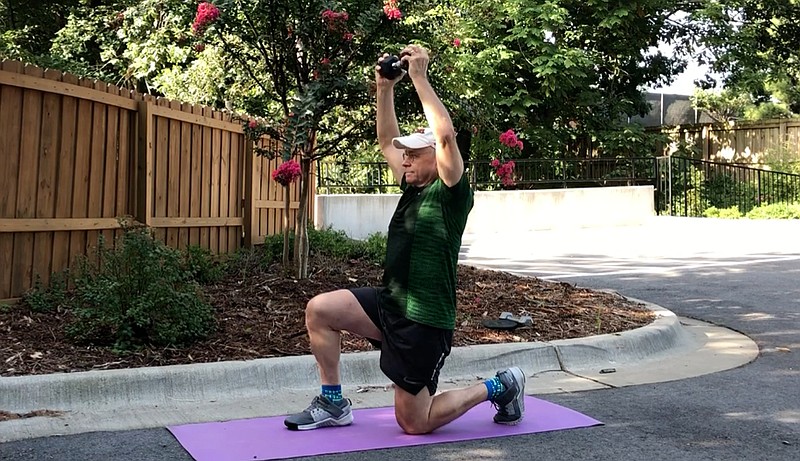For me, the start of school always signifies the beginning of the end of summer. Labor Day is the last hurrah for community pools, lake trips and extended vacations.
It is a time to reflect on the times we shared over the last three months and, more importantly, develop a plan for fall.
This week, I will discuss the key components of a 12-week fitness plan to keep the momentum rolling right through Thanksgiving. Plus, I'll share an outdoor exercise that extends our enjoyment of outdoor activity while challenging the entire body.
It's time to take control of our health. The year 2020 is a watershed moment in time that everyone will remember for one reason or another, and no one would blame a person for letting go of their health and fitness goals, given the circumstances. But as communities reopen, it is a perfect opportunity to recommit to one's fitness plan for the next 12 weeks.
The following plan will help you achieve that.
First, get a baseline assessment. Measure height, weight, blood pressure, cholesterol, body composition, flexibility, strength and cardiovascular endurance. It's impossible to set goals without a solid understanding of one's starting point. This is also a great time to check in with a doctor to make sure there are no health contraindications for participation in an exercise program (heart disease, diabetes, etc.).
Once the data have been compiled, figure out which areas are most important and prioritize. Create a list of objective, measurable goals based on your first three priorities. The goals should follow the SMART principle — make them specific, measurable, attainable, realistic, and time-based.
This program is designed to take 12 weeks, so the time-based piece of each goal is already established. From there, the idea is to get very specific about achieving those first three goals.
Those who have been largely inactive for most of 2020 run a high risk of injury at the beginning of the program, so it's important to start slowly. I recommend walking slowly on an incline at the beginning of a new program, adding one minute per workout until one is able to complete 30 minutes without stopping.
I recommend four or five days of cardiovascular exercise each week, along with two or three days of strength training. But these sessions should be short for the first month. Start with a 10-minute walk and a 15-minute strength-training session.
Allow the body to adjust to the new stimuli slowly and gain momentum one day at a time.
Understand that this is a process, and success will not be achieved overnight.
For the strength-training program, keep the movements very basic and use large muscle groups. Overhead press, pushups, squats and lat pulldowns are four of the key exercises I recommend for a beginning program.
As the program progresses beyond the first month, I encourage more creativity.
This week's exercise is a great option for those looking to mix in a creative, total-body strength-training movement. The Kneeling Rock Getup develops functional strength that translates well into everyday life.
1. Select a good size rock and find a soft, grassy spot outdoors.
2. Hold the rock with both hands and extend it overhead.
3. Place your right knee on the grass and then the left.
4. Move the right foot in front of you and stand back up, holding the rock overhead. Keep the rock overhead the entire time as you alternate which knee is lowered first, as well as the foot you stand back up on.
5. Perform 2 sets of 20.
The Kneeling Rock Getup is a perfect example of a functional movement that can be sprinkled into a 12-week program somewhere around Week 4 or 5. I wouldn't recommend incorporating this type of movement on Day One but is a good option for Stage 2 of the program.
Stay tuned for next week's column where I discuss best practices for Weeks 4 through 8 of our 12-week plan. Enjoy!
Matt Parrott has a doctorate in education (sport studies) and a master's in kinesiology and is certified by the American College of Sports Medicine.
vballtop@aol.com
